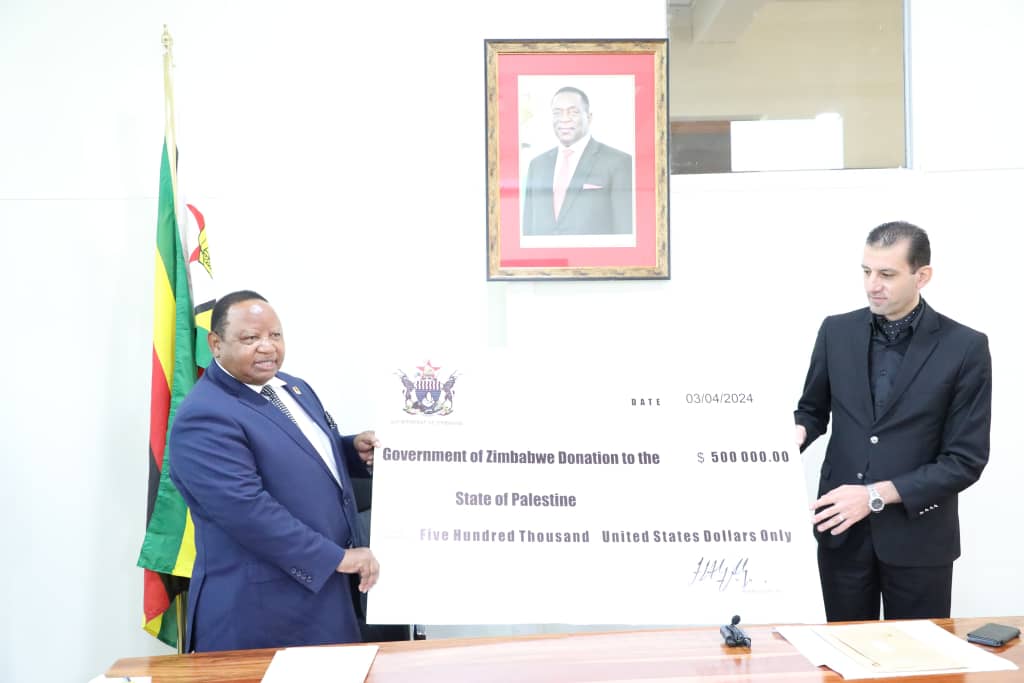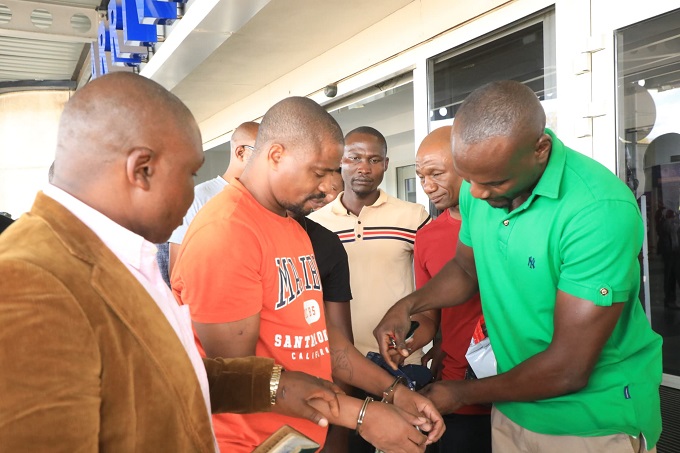Chief Justice Godfrey Chidyausiku yesterday threatened underperforming High Court judges with expulsion if they did not improve their work rate.This came after 21 out 24 Harare judges launched a blistering attack on the Chief Justice, accusing him of being out of touch with modern trends in the justice delivery system.
In a statement yesterday, Judicial Service Commission secretary Justice Rita Makarau, on behalf of Chief Justice Chidyausiku, said all judges who underperformed in the 2014 legal year would be summoned one by one to explain their failure to deliver to expectation.
“The Chief Justice maintains his position that there will be no end to the fight between him and the underperforming judges unless they improve.
“Underperforming judges will soon be summoned by the Chief Justice to explain the cause of the underperformance. In future the Chief Justice will report all underperforming judges to the Judicial Service Commission for the procedures set out in Section 187 of the Constitution to unfold,” read the Press statement.
Section 187 of the Constitution of Zimbabwe deals with the removal of judges from office and part of it reads:
“1. A judge may be removed from office only for:
a) Inability to perform the functions of his or her office due to mental or physical incapacity
b) Gross incompetence or
c) Gross misconduct;
and a judge cannot be removed from office except in accordance with this section…”
The Section also lays out the procedure that is used in removing a judge from office.
Chief Justice Chidyausiku issued the statement in response to a news story in which 21 High Court judges accused him of misleading the nation in his 2015 legal year opening speech that insinuated some judges were sleeping on duty.
The judges wrote a memorandum dated January 28 this year reacting to the speech accusing their boss of being out of touch with modern trends in the justice delivery system.
The judiciary boss said he stood by his speech and that his observations were meant to improve the justice delivery system.
“The remarks that the Chief Justice made at the opening of the legal year were meant to make judges aware that there are unacceptable levels of underperformance that cannot escape censure and equally that under the same circumstances, there is performance that sets benchmarks of what is achievable,” reads the statement.
Two weeks after the speech was publicly read, the Chief Justice said, High Court judges evidently scaled up their performance with 105 judgments being delivered.
“For the two weeks of January 2015, following his remarks, a total of 105 judgments have been handed down. This is an average of three judgments per judge in two weeks.
“In particular, the Chief Justice has noted that even the judge who handed down three judgments for the whole year in 2014, has already handed down two judgments in the first two weeks of 2015.”
Two of the underperforming judges, the Chief Justice said, had to quickly attend to some review records they received from the magistrates’ court from as far back as 2008 and the sentences had since been corrected.
“If this improved performance by judges in the past two weeks is maintained, the Chief Justice will have no cause for complaint.”
Officially opening the 2015 Legal Year last month, Chief Justice Chiyausiku criticised most High Court judges for underperformance and said the majority were lazy.
So bad was the situation, he said, that one of the judges had only managed to complete two cases the whole year.
But the judges reacted with anger, saying most of the contents of Chief Justice Chidyausiku’s speech were delivered in bad faith.
Only three judges — Justices Nicholas Mathonsi, Susan Mavangira and Priscilla Chigumba, who were singled out for praise by Chief Justice Chidyausiku — did not sign the letter, written to Judge President Justice George Chiweshe, the head of the High Court, for onward transmission to the Chief Justice.
Justice Custom Kachambwa of the Gweru Labour Court also wrote to Chief Justice Chidyausiku after he was criticised over delays in writing judgments.
The Harare judges wanted Chief Justice Chidyausiku to correct “the wrong impression created” and repair the damage inflicted on their reputation and dignity by placing all relevant information in the public domain.
They also wanted the Chief Justice to come up with an objective, fair and just appraisal system for all judges in respect of their judicial, quasi-judicial and non-judicial functions. The judges said Chief Justice Chidyausiku criticised one of the judges for writing two judgments for the entire year when he had been assigned to non-judicial functions. They said upon return to the High Court, the same judge was assigned to head a special court where he wrote several judgments which were not captured in Chief Justice Chidyausiku’s speech because they did not appear in the court’s tracking system.
The judges said some of them not commended by Chief Justice Chidyausiku were saddled with complex trials which took long to conclude.
They said more senior judges were also from time to time being called to help out at the Supreme Court and the Constitutional Court, a fact they claimed Chief Justice Chidyausiku did not consider in his evaluation of their performance.






